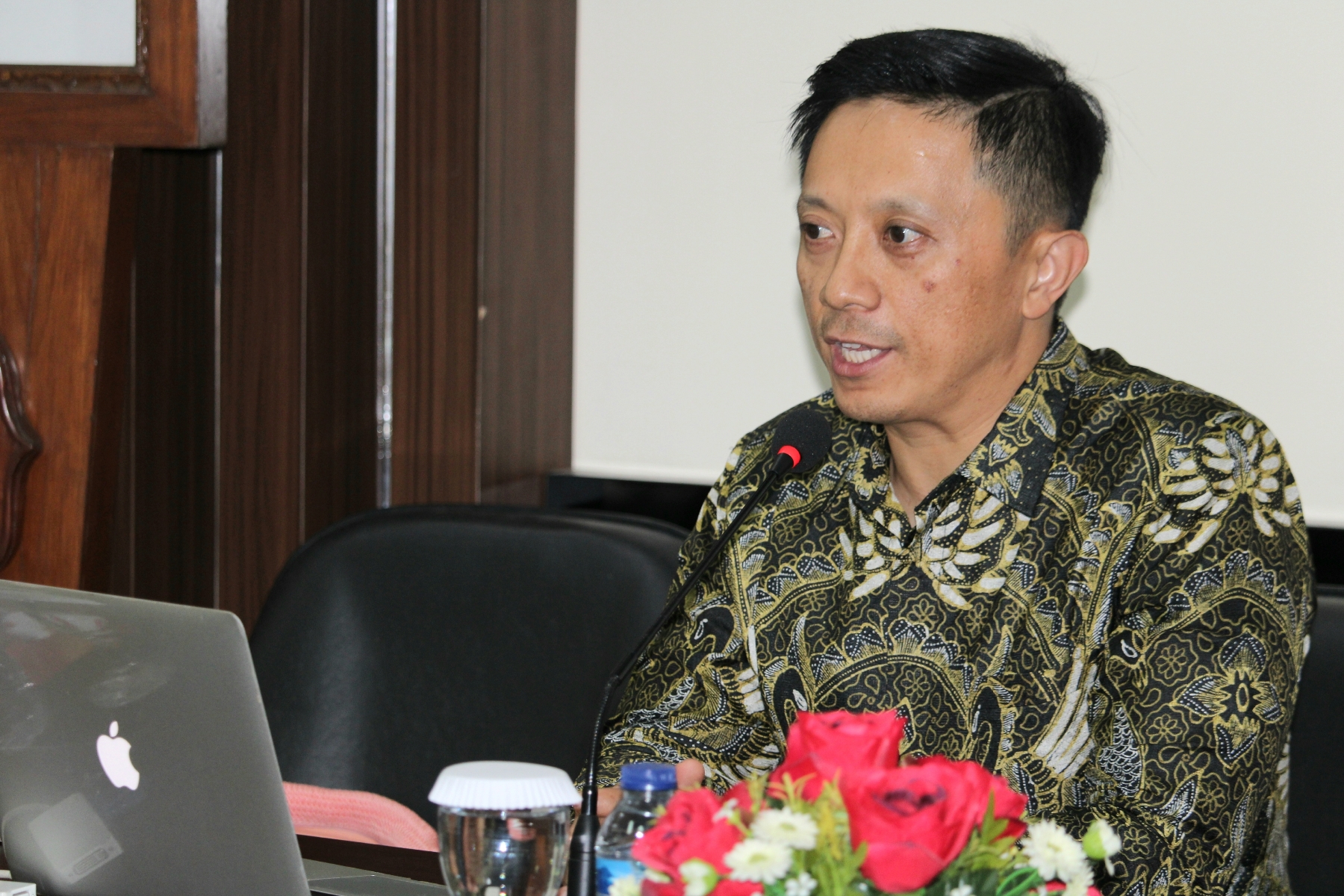
A Better Access to Get Financial Product and Service Should be Established for the Public
The Faculty of Economics Business, Universitas Sebelas Maret (FEB UNS) invites Dr. Chandra Chahyadi from Eastern Illinois University, USA in a discussion with the Faculty members and postgraduate students of FEB UNS, in Thursday, October 26th, 2019. The Associate Dean of Academic Affairs of FEB UNS, Dr. Izza Mafruhah, welcomed the event and hopes that the discussion can encourage more researches in financial inclusion. “As we know, the competition for DIKTI grant is increasingly stringent by year. A research collaboration with Dr. Candra will provide a richer understanding for the related topic, as well as providing advices on research method, data, and analysis tools,” Dr. Izza mentions.
On the opening of his presentation, Dr. Chahyadi mentions that financial inclusion is an interesting topic and relevant for the government, as they have a great concern on poverty alleviation and one of the most effective measures is to introduce a formal financial system. Further he explains that there are many beneficial financial products for the community. However, the community often do not have access to get the products or services. Many assumed that poverty is caused because the society does not know or posses financial literacy. This assumption is not completely correct, as the society usually have a basic financial literacy, for instance they have intuition to save their money and/or preparing a financial planning through simple form such as arisan.
He also mentions that 31% of world population do not have bank account, approximately 1.7 billion people, while the rest currently have a bank account but is not an active user. “If we can help them to gain access to bank, they can do easier, faster, and safer transaction. Therefore, we should encourage them to have a bank account that insured by the Deposit Insurance Agency (LPS). By doing so, we could help SMEs to get better funding as well as reducing poverty.”
Finally, he added that the current conventional banking system is too rigid, which made it difficult for the community to access.

